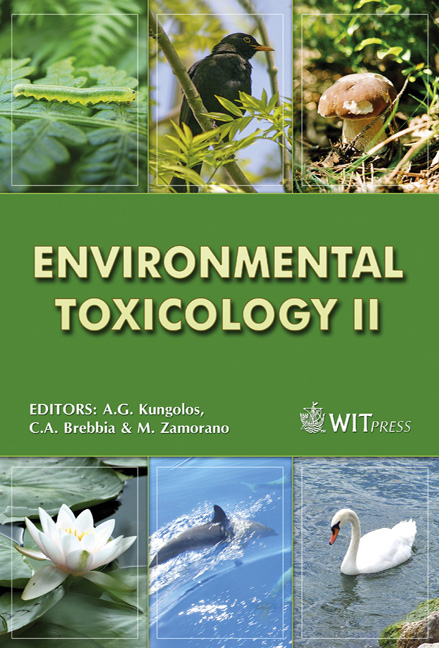When Can Surfactants Enhance Hydrocarbon Biodegradation In Oil Biotreatments?
Price
Free (open access)
Transaction
Volume
110
Pages
10
Page Range
169 - 178
Published
2008
Size
429 kb
Paper DOI
10.2495/ETOX080181
Copyright
WIT Press
Author(s)
C. Calvo, A. Silva-Castro, C. Perucha, J. Laguna, I. Uad & J. G. López
Abstract
Petroleum hydrocarbon compounds bind to soil components and are difficult to remove and degrade. Surfactants and emulsifiers can emulsify hydrocarbons enhancing their water solubility, and increasing the displacement of oily substances from soil particles. The effects of the Ivey surfactant on oil hydrocarbon biodegradation was studied using microcosm systems containing three different soil types amended with commercial NPK fertilizer. Microbial activity was evaluated following growth of heterotrophic and degrading microorganisms, dehydrogenase activity and production of CO2. Hydrocarbon degradation was established by determining the amount of TPH (total petroleum hydrocarbon) and alkanes, the indices nC18/phytane and pristane/nC17 and the percentage of prystane and phytane. Ivey surfactant augmented the amount of hydrocarbon removed in both clay and sandy soil. This indicates that surfactant could play an important role as a biostimulating agent at the beginning of the process and in combination with a nutrient addition. Also, CG/SM analyses have shown changes in hydrocarbon composition related to the rate of biodegradation Keywords: surfactant, biodegradation, hydrocarbon. 1 Introduction Bioremediation methods use microorganisms that occur naturally in the environment and degrade (mineralise) contaminants to less toxic or harmless
Keywords
surfactant, biodegradation, hydrocarbon.





